What happens when a black and a Jew come together to talk antisemitism

- Oops!Something went wrong.Please try again later.
- Oops!Something went wrong.Please try again later.
As he was stepping out of a sushi restaurant in North Hollywood earlier this month, TV host and sports analyst Emmanuel Acho was stopped and verbally accosted.
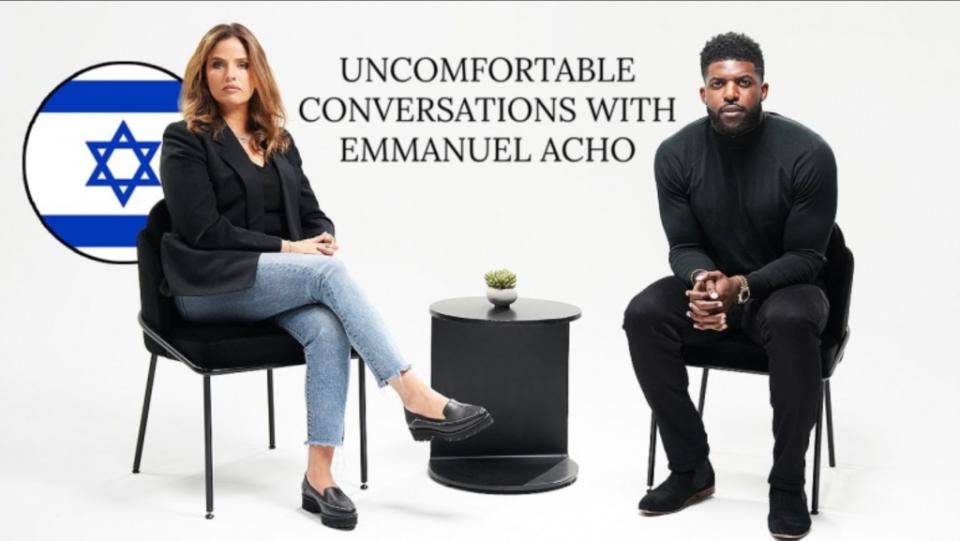
“I hope they paid you well,” a “dark-skinned” woman wrapped in a headscarf hissed at him. When the human-rights activist — who has shined a light on surging antisemitism since Hamas’ Oct. 7 attack on Israel — turned around to ask, “Who is ‘they?’ ” the woman replied simply, “Zionists.”
The former football star admitted he didn’t know what the demeaning patron was capable of as he exited into the LA night.
“If I‘m scared,” the 6-foot-2, 240-pound former NFL linebacker who’s used to taking a punch on the field, told The Post, “imagine my little Jewish friends.”
That shameful ambush only illustrates the need for his new book, “Uncomfortable Conversations With a Jew,” co-written with Israeli actress, producer and activist Noa Tishby. His previous tome, 2020’s “Uncomfortable Conversations with a Black Man,” had Acho answering squeamish questions in order to go deep into the experiences of African Americans in this country. Now he’s the one asking all of the “uncomfortable” questions.
“Rather than talking about racism and the misunderstandings of the Black struggle,” writes the 33-year-old Nigerian-American who was raised in Dallas, “we’re going to talk about antisemitism and the misunderstandings of the Jewish struggle.”
Acho’s goal for the book, proposed some 15 months before the Hamas massacre, wasn’t to be in perfect lockstep with Tishby — just to learn. The two were introduced by their agents after Acho learned about Tishby’s online activism and thought she would be a great fit for the project. Tishby, on her end, described their coming-together as “beshert” — a Hebrew phrase for “fated by God.”
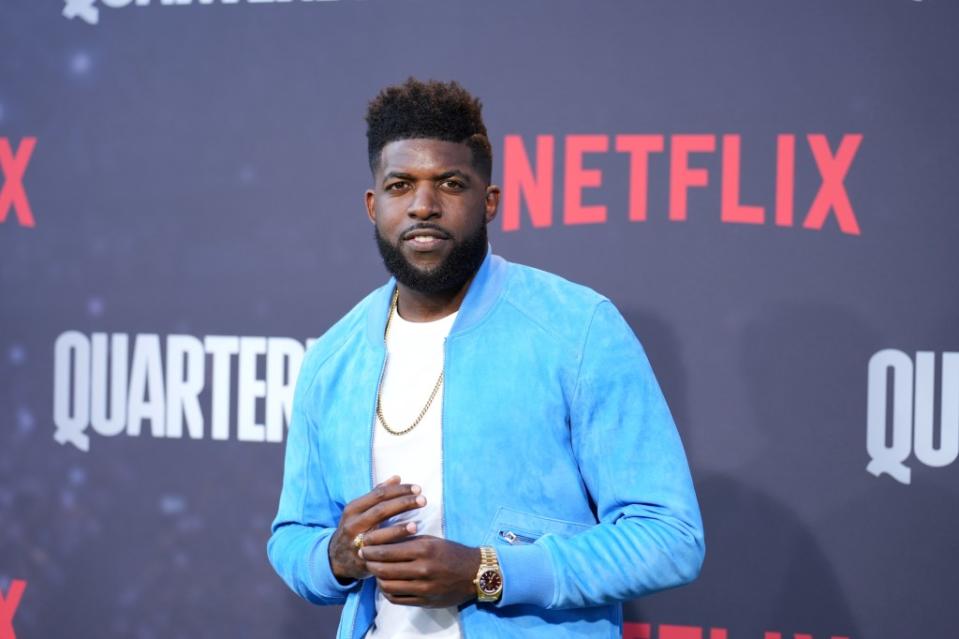
Yet the pair’s platonic and professional lovefest — and subsequent book project — was almost permanently derailed.
Days after Oct. 7, Tishby agreed to film a video interview with Acho to help put a face on the tragedy for his massive “Uncomfortable Conversations” YouTube following. When he sent her the trailer, she writes she was “devastated” to see herself in a split screen alongside a noted antisemite, Noura Erakat, who blamed Israel for the attack and has appeared in a panel alongside a senior Hamas leader, Ghazi Hamad, in 2020.
She had no problem with another point of view, but the gobsmacked actress noted that there hadn’t been a single military action taken by Israel at that point, writing, “What other side of the story? No context required. There was no other inconceivable side.”
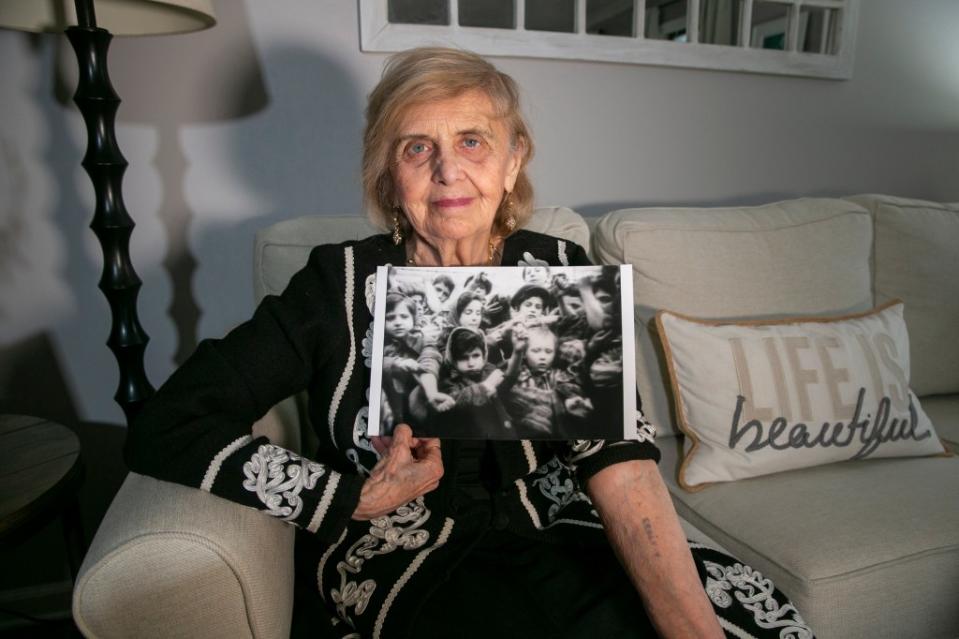
She accused Acho of “covering” himself with his followers by having it both ways and, for her part, “the book collaboration ended.”
But Tishby — who’s appeared on television show such as “Big Love” and “Leverage” — soon realized that the book’s impact far outweighed any temporary pain.
“I knew this was much more important for the black and Jewish communities and for the culture right now,” Tishby told The Post.
Neither author hesitated to include the warts-and-all flap in the final copy.
“We’re two people who are very different, who put those differences aside for the greater good. And to me, not enough people can do that,” said Acho, adding it would be a “farce” to gloss over major road bumps. “We moved past it – that’s real life.”
It’s the book’s bluntness that makes it so real. Direct, if uneasy, questions tackle “the Z word,” in a chapter on Zionism that became Acho’s “favorite conversation” — despite admitting he originally hoped to avoid using the word due to its “controversial” nature online. Tishby explained at its core it means “Israel’s right to exist,” breaking through the “uncomfortable” moment for Acho.
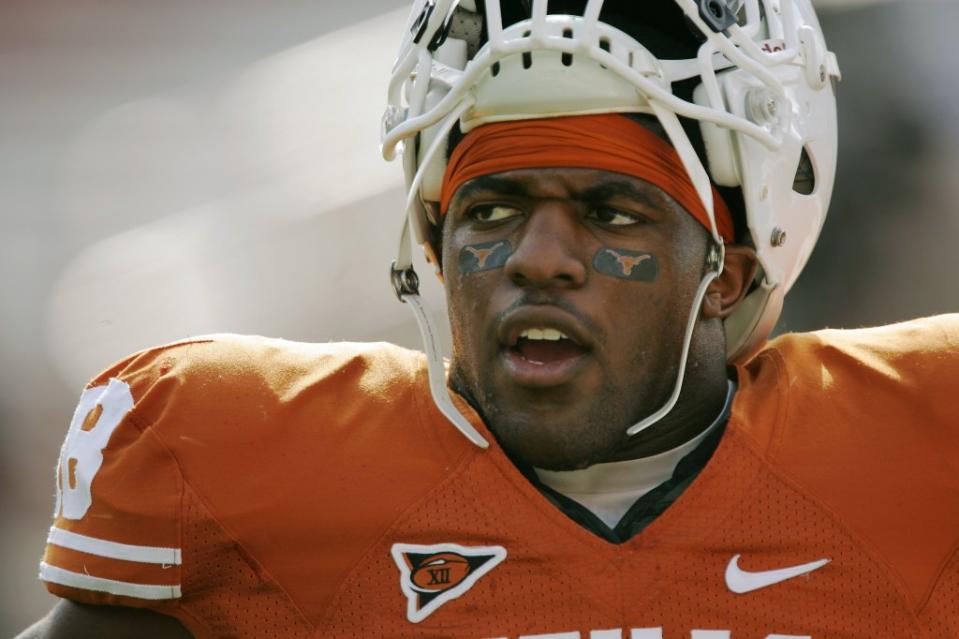
Other topics tackle enduring stereotypes — Acho innocuously believing if all “Jews weren’t, like, Crazy Rich Jews,” and asking, “Is it unfair to say that Jewish people control the [Hollywood] industry?” — in order to cut through the tired cliches and narrative hijackings.
“I needed to ask you questions about being Jewish the same way white people asked me questions about being black,” he writes.
The result was eye-opening for Acho, who admitted he thought there were “at least” 200 million Jews in the world – not 15 million, which “blows” his mind – despite his earlier work with noted Holocaust-survivor Tova Friedman, whom he interviewed on MTV in 2021.
But the collaboration between two friends in Los Angeles – one black man, one Jewish woman, in conversation-style prose — would not be without its backlash, which Acho portended early in the book.
The sushi-restaurant incident is a prime example of antisemitic-fueled hypocrisy and the odious “conspiracy theories” about Jews, Tishby, 48, said. “You saw firsthand the antisemitic conspiracy that they think you’re being paid by ‘Zionists,’ by the Jews,” said the Israeli-born mom of a young son, Ari. “She literally went to the biggest cliche.”
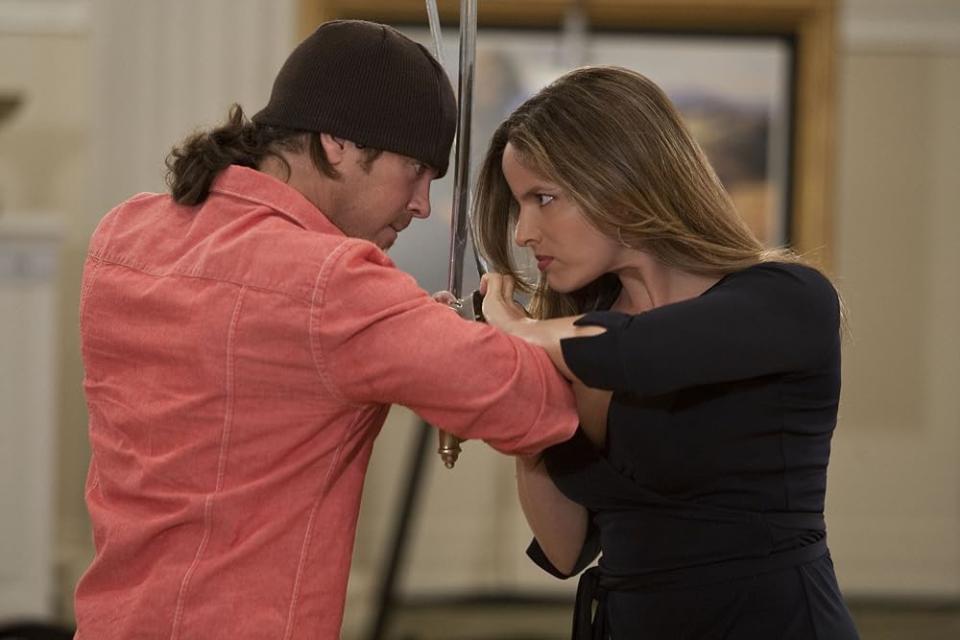
An ongoing theme in the book is the fixation on race — “are Jews white,” “not white enough,” or even “too white?” — and how that plays into whether they’re automatically shoved into the “oppressor” or “oppressed” category.
Acho told The Post he thought the greatest misconception about the Jewish people is this perception that they’re all white. “If Jewish people aren’t white, then you can’t be dancing for ‘the Man,’ ” he said, adding that he believes Jews “get a lot of the benefits of being perceived as white” in this country — which fuels some of the “animosity” from the black community.
Tishby painted a bleak picture about Jews today, many of whom are concealing their identity to survive — and how this fear of self-preservation does not fit neatly into the “privilege” category often assigned to them.
“The rules of the game have changed,” she said, noting that the Nazis considered Jews as its own, inferior race. “The Jews just don’t fit into this concept of oppressor and oppressed — it doesn’t work.” Much as it might disappoint the woke enfant terribles hijacking campus quads across the country, “You can’t assign these categories on everything; they don’t fit neatly and when you try to put the Jews in them they don’t fit.”
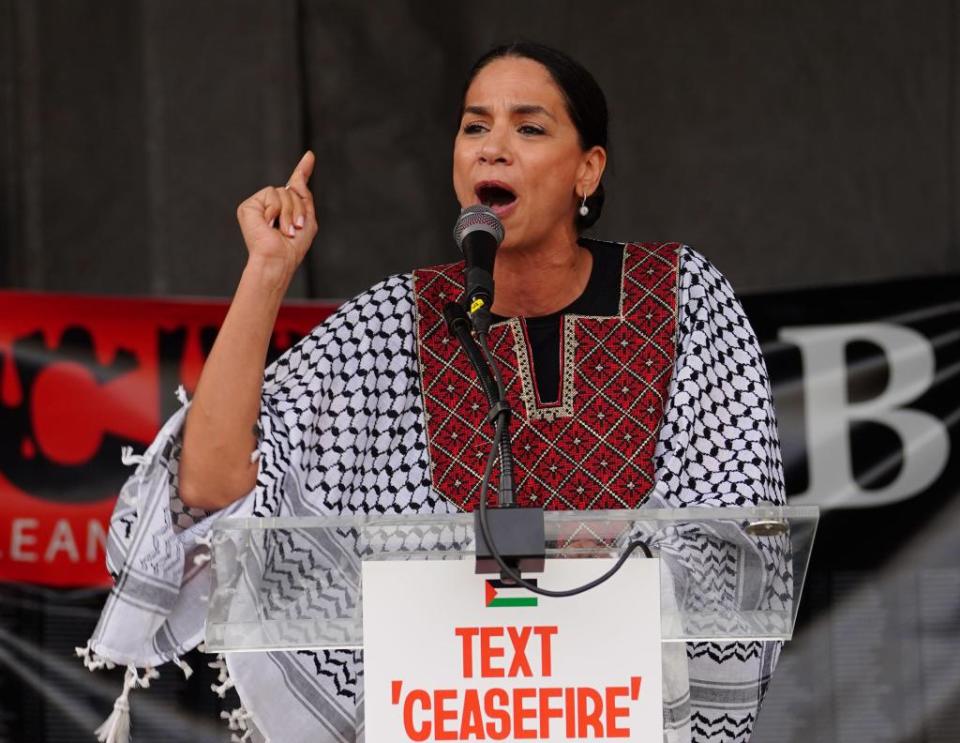
As long as Jews hide who they are, they can “survive,” she claimed, “But as soon as they say they’re Jewish and Israel has the right to exist, that puts them in danger in today’s America.”
Acho insisted he’s “1,000 percent” proud of the book, especially how it could help heal the battered black-Jewish connection that’s been “hijacked” by misunderstanding. “If the two communities would just spend more time talking, they would understand the similarities, and thus the tension would dissipate,” he said of the natural affinity both communities have had for one another throughout American history.
Tishby said the artificial fissure is due to bad actors, notably the “infiltration” into black communities by anti-Israel entities with their own “agendas,” hiding behind a mandate to “save and protect” the Palestinians or “brown people in the Middle East.” The poisoned relationship, she added, “is not by accident, it’s by design.”
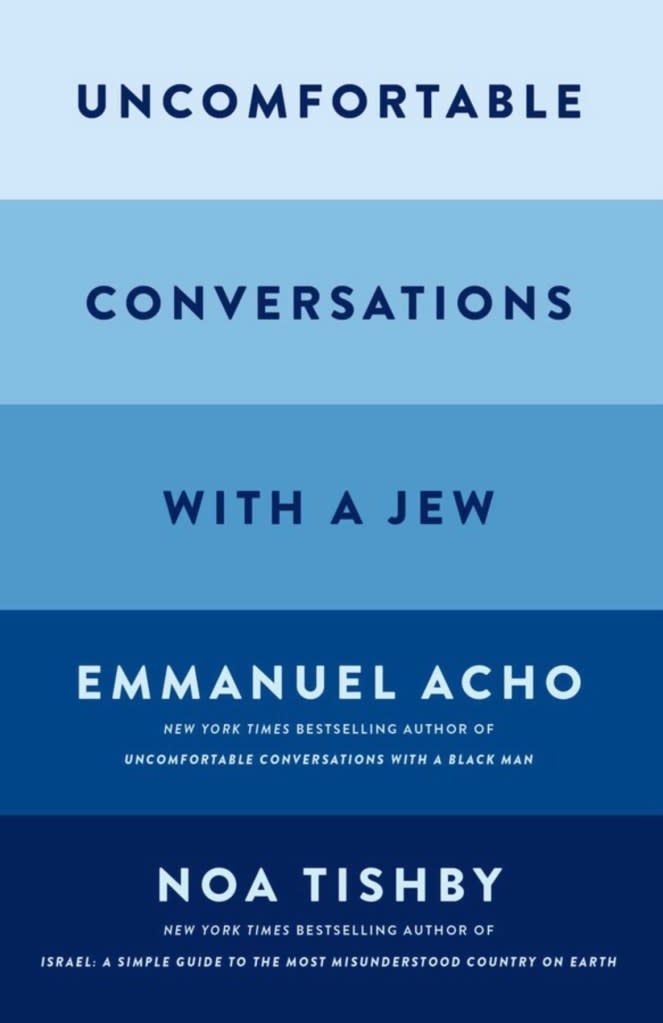
Both authors said they learned from the other’s perspective. Acho said that he feels like he really “understands” the Jewish community — truly “empathizing” with it, with its “generational trauma,” while Tishby explained the gratification when Acho “really got” how “anti-Zionism is the new antisemitism.”
Even through the roller coaster moments, they saw the book through — and said they’re stronger than ever.
“Of course we’re friends,” Tishby said. “We have to learn to have uncomfortable conversations, as humanity.
“The younger generation gives so much more credence to safe spaces and being comfortable than to get to know the other side — which can sometimes be uncomfortable.”

